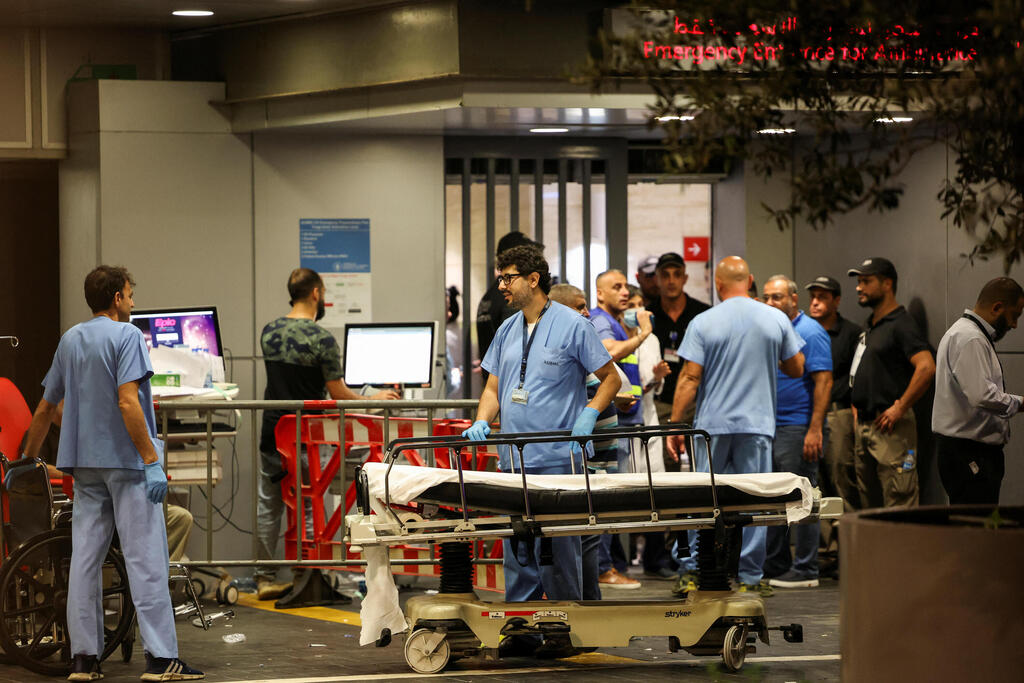Getting your Trinity Audio player ready...
On today's battlefield, information is sometimes more valuable than weaponry. One of the most important weapons in modern warfare is operational security (OPSEC), thus, the recent presumed Israeli strike on Hezbollah's communication network should act as a wake-up call for governments, the military and any organization that deals with sensitive data.
One crucial mistake Hezbollah made last year was not protecting its communications by using identical pagers throughout its network, which Israeli intelligence may have taken advantage of with incredible effectiveness.
Pagers explode across Lebanon, injuring thousands of Hezbollah operatives
Indeed, for the time being, we report more than 1,000 injuries caused by the short circuit of a hundred Hezbollah pagers. This event reminds us starkly that in the 21st century, an enemy's ignorance of their own weaknesses could be more powerful than a missile.
Hezbollah's error in depending only on standard communication tools let Israel exploit a clear weakness. When their pagers exploded, hundreds of Hezbollah fighters were hurt – a result that would seem like something taken out of a science fiction film, but is actually the new reality of war. Israel's intelligence services capitalized on Hezbollah's recent OPSEC failure to obtain similar pagers for their leadership.
This is no coincidence. Time and again we find that inadequate operational security can either make or break military operations. Hezbollah's mass purchase of identical pagers produced a communication system so consistent that it virtually invited sabotage.
Hezbollah left itself open to an attack that not only destroyed its communication network but also resulted in extensive casualties to its terrorist personnel by neglecting to diversify its communications or acknowledge the inherent risk of depending on a single mode of technology.
Beyond only inadequate communication security, Hezbollah's vulnerability results from more fundamental organizational dysfunctions. Long considered as a major threat in the region, the terrorist group is becoming more and more dispersed. Its leadership's differences, especially the opposing views of Nasrallah and its Iranian supporters, have generated major internal strife.
The terrible situation in Lebanon, brought about by the 2020 Beirut port explosion—which is well known to have resulted from improper weapon storage—weakens Hezbollah's position as well. Apart from destroying the nation, this catastrophe seriously compromised Hezbollah's domestic credibility.
Moreover, Hezbollah's recent need to rebuild its ranks in response to the great losses in the Syrian civil war has led to major security lapses. Often less ideologically screened than past generations of fighters, new recruits have let Israeli and other foreign intelligence services infiltrate the group. Developed over the past few years, this network of informants and spies has given Israel the edge in capitalizing on Hezbollah's shortcomings. Such infiltration most certainly explains the recent pager explosions—more proof of Hezbollah's operational collapse under internal strife as well as outside pressures.
This vulnerability results from a disjointed and disorganized leadership, not only from technical OPSEC failure. Nasrallah's alignment with Iran's more general regional aspirations often runs counter to the more Lebanon-centric objectives of Hezbollah's local leadership, resulting in a disjointed and aimless group.
A divided leadership inevitably undermines security. In Hezbollah's case, this inability to preserve operational coherence has made it vulnerable not only to Israeli intelligence but also to the more general difficulties presented by the crumbling Lebanese state.
Furthermore, Hezbollah’s calculated expansion during the Syrian civil war led to significant losses, forcing the group to lower its recruitment standards.
Desperate, this action allowed Israeli intelligence services—and maybe others—to plant operatives among Hezbollah's ranks. Originally quite closed-off and orderly, Hezbollah's structure is now more porous than it has ever been, thus it is easily manipulated from within.
Israel's alleged pager sabotage reflects how successfully Israeli intelligence has permeated Hezbollah. These internal flaws have let Israel undercut Hezbollah's activities from the inside, transforming once-effective Hezbollah tactics into easily targeted weaknesses.
The purported attack by Israel highlights the strategic foresight and operational ability of its intelligence services. By means of painstaking preparation and long-term infiltration, Israel has turned Hezbollah's own technology against it. Years of intelligence gathering have culminated in this operation against Hezbollah, most likely supported by insiders.
Israeli intelligence has long been outstanding in transforming data into a weapon; Hezbollah's disarray simply makes this easier. Israel's success here is about a mastery of the ideas of OPSEC that Hezbollah has neglected, not only about technological superiority.
This episode ought to be a serious warning to armies the world over. Securing communication networks is an existential need rather than just a technical one.
Failure to prioritize operational security will ultimately lead to significant disadvantages. The risks of low OPSEC are not exclusive to Hezbollah. Even Israel has struggled with its fair share of problems notwithstanding its achievements.
For example, the hack on October 7, 2023, in which private Israeli military data was leaked, underlined the universal difficulties of preserving rigorous security measures in a time of ubiquitous digital communication.
Moving forward, the worldwide military community and beyond, global organizations and high-level personalities have to see this as a wake-up call to improve OPSEC procedures all around.
Days of undervaluation of the significance of safe communications are long gone. From governments to top leaders, every company must absorb the concept that operational security is a proactive strategy rather than only a defensive one. Any military plan must obviously depend on the security of communication networks, the diversification of technologies and continuous vigilance in avoiding vulnerabilities.
Hezbollah's disastrous OPSEC failure is more than just a one-off occurrence; it's a case study in how information security is progressively defining current informational operations. Military success in this over-connected age, when communication networks are as important as physical weapons, depends mostly on information protection.
For Israel, its assumed attack on Hezbollah marks yet another triumph in its protracted effort to neutralize dangers by intelligence. The lesson is obvious for any military organization paying attention: neglect.







